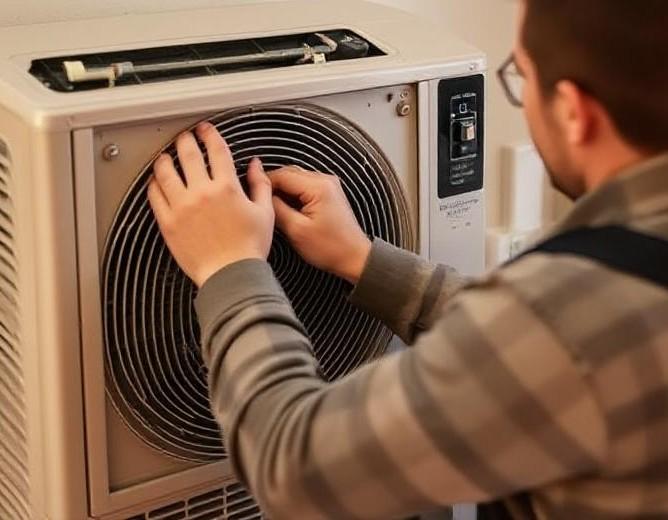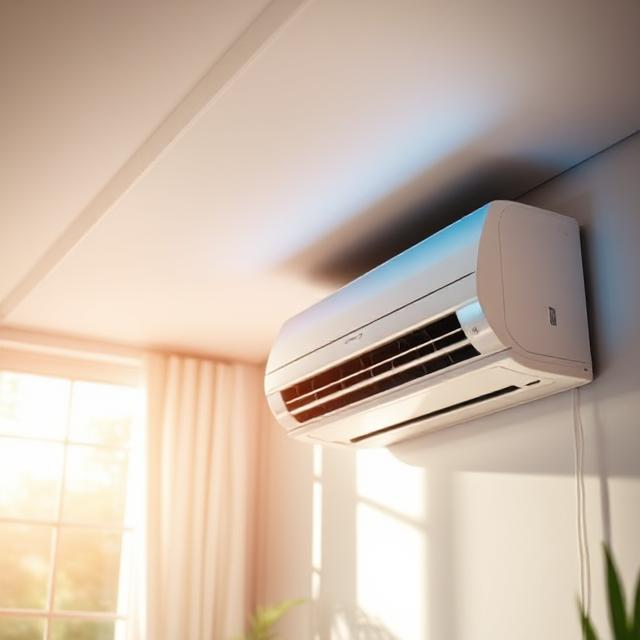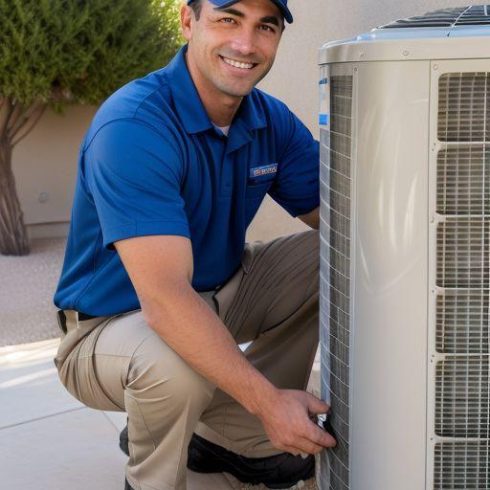Understanding the $5000 Rule for HVAC Systems in Thermal, CA: A Comprehensive Guide
Introduction
In the world of home comfort, HVAC systems are akin to the unsung heroes, ensuring that our living spaces remain comfortable regardless of the external temperature. Yet, navigating the nuances of HVAC services, especially in places like Thermal, CA, can often feel overwhelming. Among these intricacies lies a concept that's gained traction among homeowners and contractors alike—the $5000 rule. In this comprehensive guide titled "Understanding the $5000 Rule for HVAC Systems in Thermal, CA," we’ll delve into what this rule entails, its implications for your HVAC system, and how it can help you make informed decisions about your heating and cooling needs.
Understanding the $5000 Rule for HVAC Systems in Thermal, CA
The $$5000 rule$$ is more than just a catchy phrase; it's a guiding principle that many HVAC professionals recommend when faced with system repairs or replacements. The basic premise is straightforward: if an HVAC repair exceeds 50% of the cost of a new unit—typically around $5,000—homeowners should consider investing in a new system instead of pouring money into ongoing repairs.
Why Is It Important?
This rule serves several purposes:
Who Should Follow This Rule?
While the $5000 rule is beneficial for most homeowners, it's particularly relevant for those whose systems are over ten years old or frequently require service. If you're constantly calling for HVAC services in Thermal, evaluating whether to repair or replace is crucial.
A Deeper Look into HVAC Systems
To fully grasp the $5000 rule's significance, it's vital first to understand what an HVAC system comprises and how it functions.
What Does HVAC Stand For?
HVAC stands for Heating, Ventilation, and Air Conditioning. It represents various technologies designed to provide indoor environmental comfort.
Heating Systems
Heating systems can include furnaces, heat pumps, or boilers that work together to keep your home warm during colder months.
Ventilation Systems
Ventilation ensures fresh air circulates through your home while removing stale air. This aspect is crucial for maintaining indoor air quality.
Air Conditioning Systems
Air conditioning units cool down indoor spaces by removing heat and humidity from the air.
Common Types of HVAC Systems
Knowing which type you have can help you better assess whether the $5000 rule applies to your situation.

Signs Your HVAC System May Need Replacement
Identifying when to replace your system can save time and money in the long run. Here are some key indicators:
1. Frequent Repairs
If you're calling for repairs multiple times per season, it might be time to consider replacing your unit entirely rather than spending money on temporary fixes.
2. Rising Energy Bills
Noticing an uptick in your utility bills without any changes in usage patterns? An inefficient system could be to blame.
3. Age of Your System
Most HVAC systems last between 10-15 years; if yours is approaching or exceeding that age range, you may want to look into newer models.

4. Inconsistent Temperatures
Do certain rooms feel warmer or colder than others? This inconsistency indicates potential issues within your system that need addressing.
Financial Considerations with the $5000 Rule
When considering whether to repair or replace your unit based on the $5000 rule, financial aspects must be carefully weighed.
Cost Breakdown: Repair vs Replacement
| Aspect | Repair Costs | Replacement Costs | |----------------------|----------------------|-------------------------| | Initial Investment | Lower upfront costs | Higher upfront costs | | Long-term Savings | Potentially higher due to frequent repairs | Likely lower due to efficiency | | Warranty Options | Limited warranties | Extended warranties available |
Financing Options for New Units
Many homeowners may hesitate due to high upfront costs associated with new systems; however, financing options are often available through local providers or manufacturers.

Choosing an Appropriate HVAC System: What You Need To Know
Selecting a new system isn't just about cost; it's also about finding one tailored specifically to your home's needs:
1. Size Matters
Choosing a unit that’s too large or too small can cause inefficiencies and higher energy costs down the line. Always consult with professionals before deciding on size.
2. Energy Efficiency Ratings (SEER/HSPF)
Look at Seasonal Energy Efficiency Ratio (SEER) ratings for air conditioners and Heating Seasonal Performance Factor (HSPF) ratings for heat pumps—it pays off!
3. Installation Quality
Even the best units won’t perform well if not installed correctly; ensure you're working with trusted local contractors when selecting your new system.
The Role of Maintenance in Prolonging Your System's Life
Regular maintenance can significantly extend the lifespan of any heating or cooling unit:
1. Scheduled Inspections
Annual inspections help identify issues before they become major problems—saving time and money later on!
2. Filter Changes
Changing filters regularly keeps airflow steady and helps maintain efficiency—all simple tasks you can do yourself!
FAQs About Understanding the $5000 Rule for HVAC Systems in Thermal, CA
Q1: How do I know if my repair costs exceed $5,000?
A1: Get quotes from licensed technicians who will assess your specific problems; compare those costs against purchasing a new unit!
Q2: What kind of warranty should I expect when buying a new unit?
A2: Many reputable brands offer extensive warranties ranging from five years up to lifetime options depending on components covered!
Q3: Are there energy incentives available for upgrading my system?
A3: Yes! Many state programs provide incentives or rebates—check local listings as they vary by region!
Q4: Can I install my own unit?
A4: While DIY installation may seem appealing financially speaking—it's highly advised against unless professionally trained as improper setup could void warranties!
Q5: How often should I change my air filters?
A5: Generally every one-to-three months depending on usage levels—frequent check-ups ensure optimal efficiency!
Q6: What features should I look for in a modern HVAC system?
A6: Features such as smart thermostat compatibility & variable-speed fans enhance functionality while improving energy savings overall!
Conclusion
Navigating through decisions surrounding heating and cooling systems doesn’t have to be overwhelming—with knowledge comes power! Understanding concepts like the $$5000 rule$$ empowers homeowners throughout Thermal’s unique climate conditions! Remember—the balance between repairing versus replacing hinges on personal circumstances—but adhering closely will undoubtedly lead towards making informed choices down-the-line! So take charge today! For tailored guidance regarding all things related specifically towards HVAC services Thermal—don't hesitate reaching out directly!
This anthemcv.com comprehensive guide serves as not only resourceful information but also encourages proactive management regarding household climates efficiently moving forward into future endeavors!